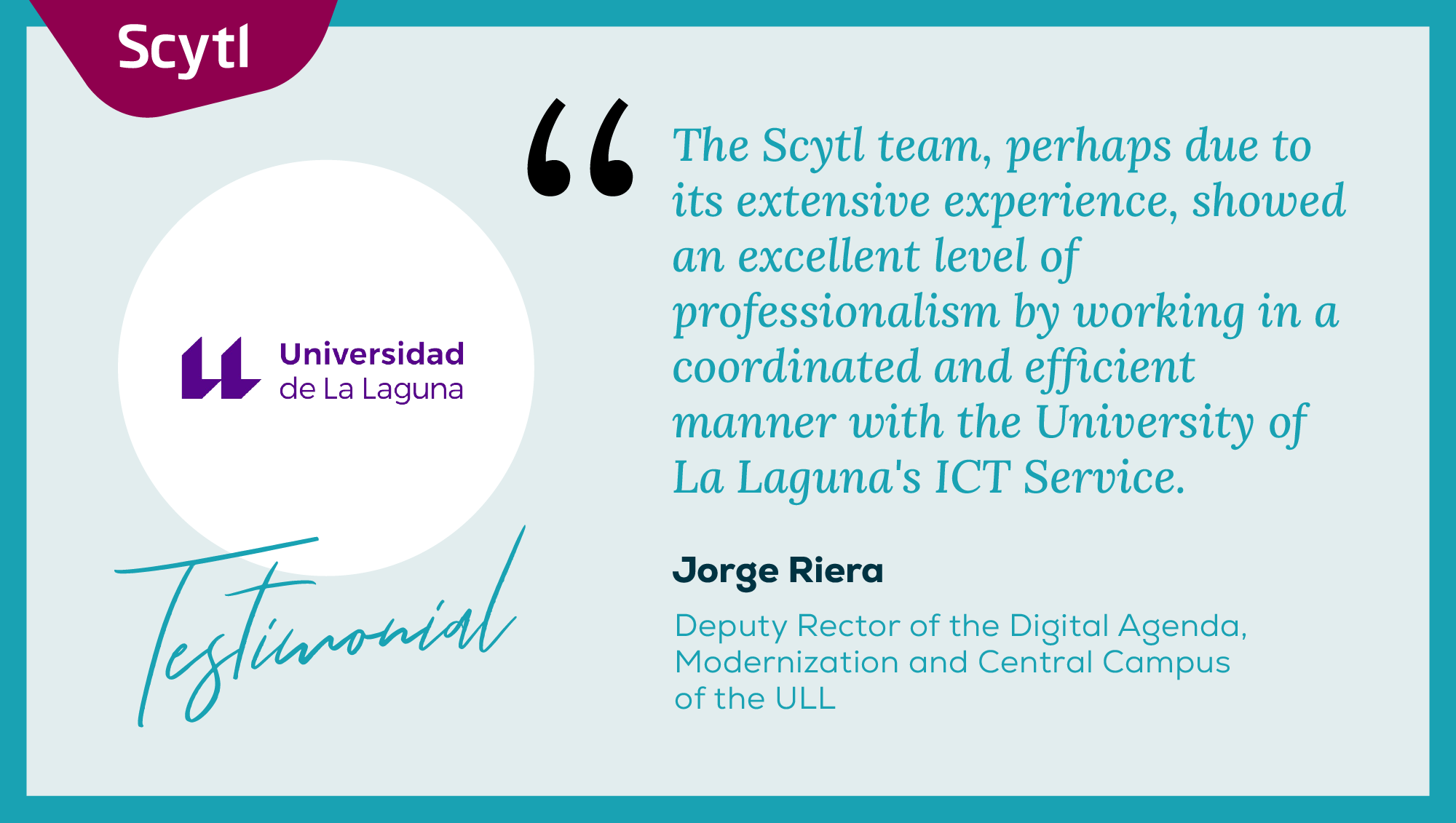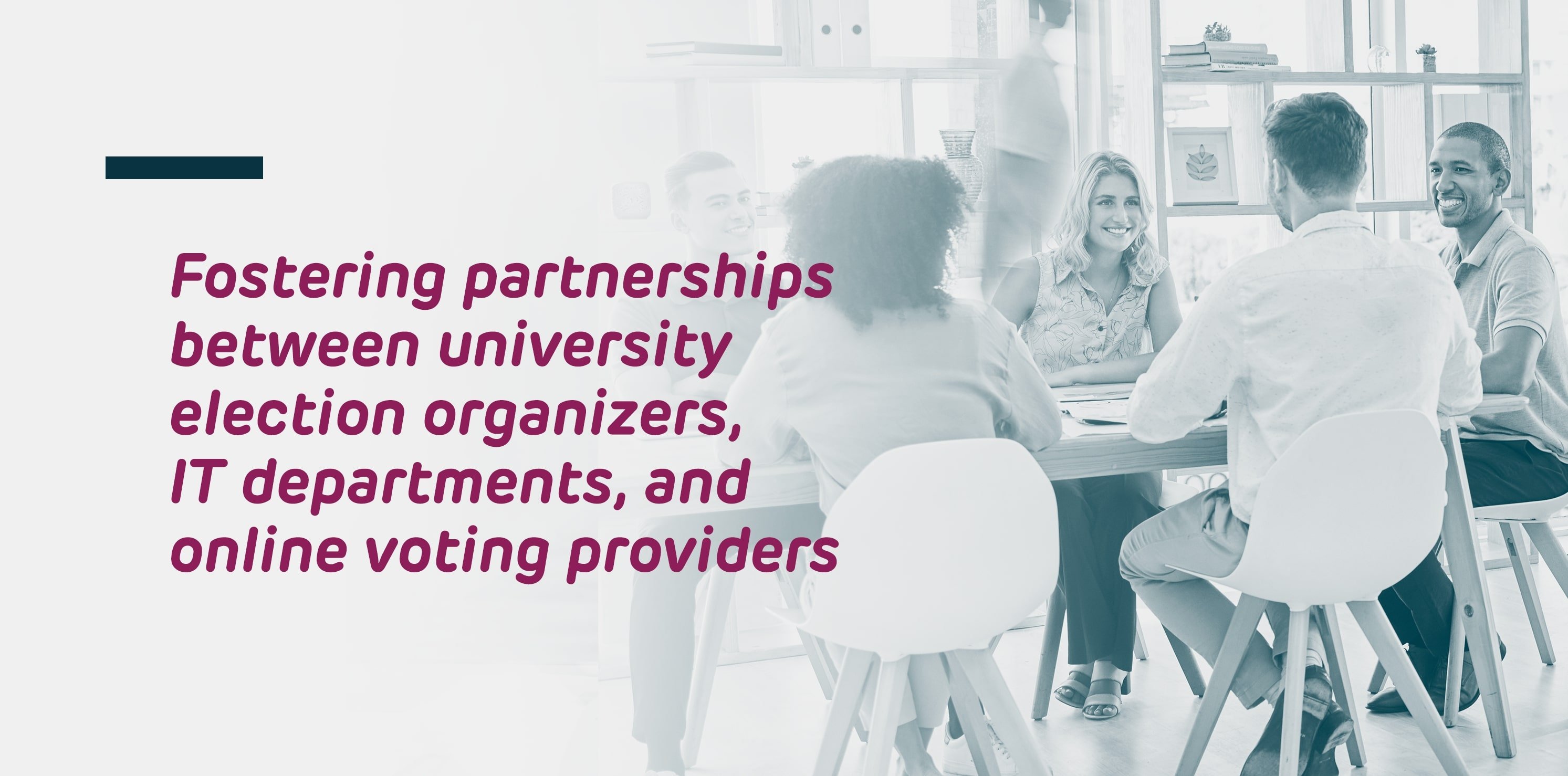Collaborating for Success
In the dynamic landscape of university elections, the successful implementation of online voting technology relies heavily on collaborative partnerships between election organizers, Information Technology (IT) departments, and online voting providers. This collaboration is not just about integrating technology; it's about aligning goals, addressing challenges, and ensuring a seamless voting experience for the entire university community.

Having worked to implement online voting solutions at universities around the world, we've picked up a few keys to ensuring impactful collaboration. Let's take a look:
Effective Communication and Understanding
Clear communication is the foundation of any successful partnership. All parties involved in an online voting project must establish open lines of communication to discuss objectives, timelines, and potential challenges. This communication is a two-way street — those organizing a university elections need to convey their vision and electoral requirement requirements, while IT professionals must work with the chosen online voting provider to articulate technical possibilities, limitations, and potential solutions.
Understanding each other's perspectives is crucial. Election organizers will have a strong grasp on their electoral goals and the bylaws they must comply with, while IT professionals and project managers from the online voting provider contribute technical know-how and security, accessibility, and compliance considerations. Recognizing and valuing these complementary skills fosters a collaborative environment where both parties work towards a common goal.

Addressing Technical Challenges
Implementing online voting technology involves certain technical considerations. IT departments often play a pivotal role in assessing and addressing these challenges for their university. Elections organizers looking to utilize online voting or upgrade their current solution can seek support from IT departments to choose an appropriate voting platform, ensuring data security and system scalability.
The right online voting provider should offer the support IT departments and election organizers need to get up and running. They can help establish realistic timelines, identify potential bottlenecks, and greatly reduce the risk of last-minute technical challenges.
Maintaining Security and Compliance
One of the paramount concerns in university elections is the security and integrity of the voting system. With an improper system, not only could election results be called into question, but personal data could also be made vulnerable. In this regard, the online voting provider should implement robust security measures, including encryption, multi-factor authentication, and continuous monitoring.
Moreover, compliance with legal and regulatory frameworks is non-negotiable. The chosen online voting provider should therefore be able to prove to election organizers and IT professionals that their solution not only complies with internal election laws, but also with data protection regulations and other relevant local and federal mandates and certifications, like WCAG and StateRAMP.
Adaptability for Continuous Improvement
In addition to guaranteeing a successful first election, maintaining healthy collaboration between university election organizers, IT departments, and their online voting provider also ensures an open road for continuous improvement in the future.
Using this pre-established communication channel, as well as regular feedback loops, post-election reviews, and check-in discussions, your university can be sure that your online voting provider is ready to meet your needs.
In the realm of university elections, the synergy between election organizers, IT departments, and their online voting provider is indispensable. It's not merely a technical integration but a collaboration that shapes the future of voting processes on campus. By fostering effective communication, addressing technical challenges, prioritizing security and compliance, and embracing adaptability, this partnership becomes the cornerstone for successful online voting implementations.

